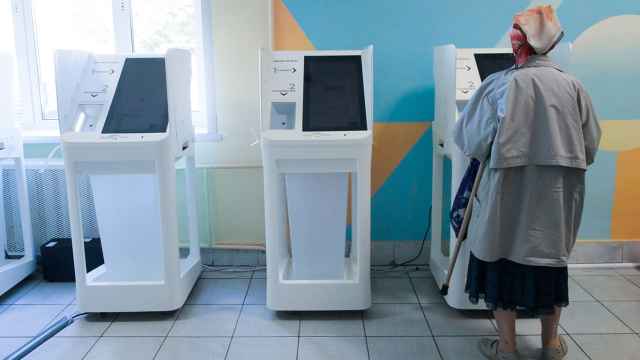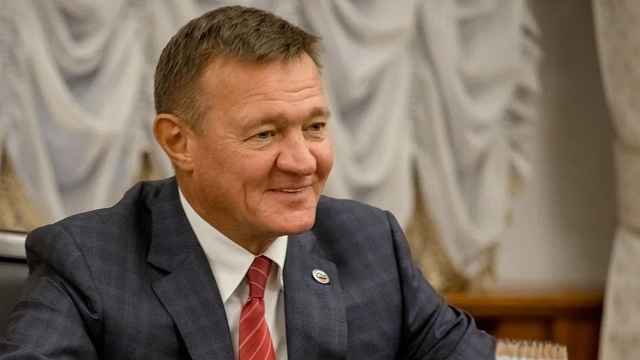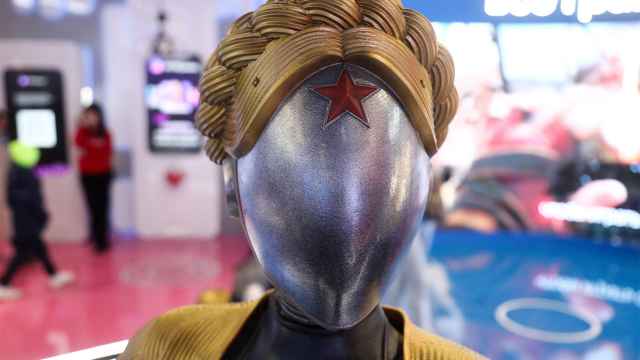After Georgia's ruling party lost the Oct. 1 parliamentary elections, President Mikheil Saakashvili took a major step into the history books. After his presidential term expires in October 2013, he will enjoy the best of all possible worlds for a retired politician who has earned a good reputation. He will spend his remaining years — I hope it will be for the next 40 years or so — speaking at global economic and political forums on the theory and practice of reform and making patronizing comments on the activities of the latest Georgian leader. In addition to his speaking engagements, he should have no problem finding respectable positions in high-profile organizations and companies.
That is exactly how it should be when democratic leaders leave. It is a sign of a country's development and the maturity of its political elite when a person who has worked for a number of years at the highest post can concede electoral defeat and pass the power to his successor.
That is a distinguishing feature of a country with a developed and modern system of governance. The leader steps down in a timely manner and not when he is forced out of office because the country can no longer tolerate the growing inefficiency, corruption and chaos resulting from his rule. No leader should remain in power longer than eight or 10 years. Since Saakashvili assumed office in January 2004, his time to step down arrived in any case, regardless of the results of the parliamentary elections.
Of course, Saakashvili could take another route. He could join the opposition and fight to regain power, especially because his party, despite losing its majority, still retains a powerful presence in parliament. What's more, the country's political system will switch next year from a presidential to a parliamentary republic, investing that body with more authority than it currently has.
A century ago, it was standard practice in countries with developed political systems for ousted leaders to fight for a comeback. A few U.S. presidents tried to do this, and one of them, Grover Cleveland, was successful.
But for the last 50 years, this pattern has been more common in developing countries. In these countries, former presidents attempting to return to power have been less guarantors of stability and more the source of constant political turbulence. Some succeeded in returning to power, such as former Dominican Republican President Joaquín Balaguer; Carlos Andres Perez, president of Venezuela from 1974 to 1979 and again from 1989 to 1993; and Nicaraguan President Daniel Ortega. Nonetheless, when leaders hang onto power too long, it almost always ends badly, especially for the country involved.
During his two terms in office, Saakashvili instituted important political and economic reforms in a small country that had been ravaged by civil wars, corruption and economic decline. The parliamentary victory of the opposition shows that Saakashvili did not abuse the mandate he received from voters by building a personality cult around himself with the aim of remaining in power indefinitely.
In the end, Saakashvili, by stepping down, is leaving a democratic legacy behind. Let's hope his successor preserves and further develops this legacy.
Konstantin Sonin is a professor and vice rector at the New Economic School in Moscow and a columnist for Vedomosti.
Related articles:
A Message from The Moscow Times:
Dear readers,
We are facing unprecedented challenges. Russia's Prosecutor General's Office has designated The Moscow Times as an "undesirable" organization, criminalizing our work and putting our staff at risk of prosecution. This follows our earlier unjust labeling as a "foreign agent."
These actions are direct attempts to silence independent journalism in Russia. The authorities claim our work "discredits the decisions of the Russian leadership." We see things differently: we strive to provide accurate, unbiased reporting on Russia.
We, the journalists of The Moscow Times, refuse to be silenced. But to continue our work, we need your help.
Your support, no matter how small, makes a world of difference. If you can, please support us monthly starting from just $2. It's quick to set up, and every contribution makes a significant impact.
By supporting The Moscow Times, you're defending open, independent journalism in the face of repression. Thank you for standing with us.
Remind me later.





